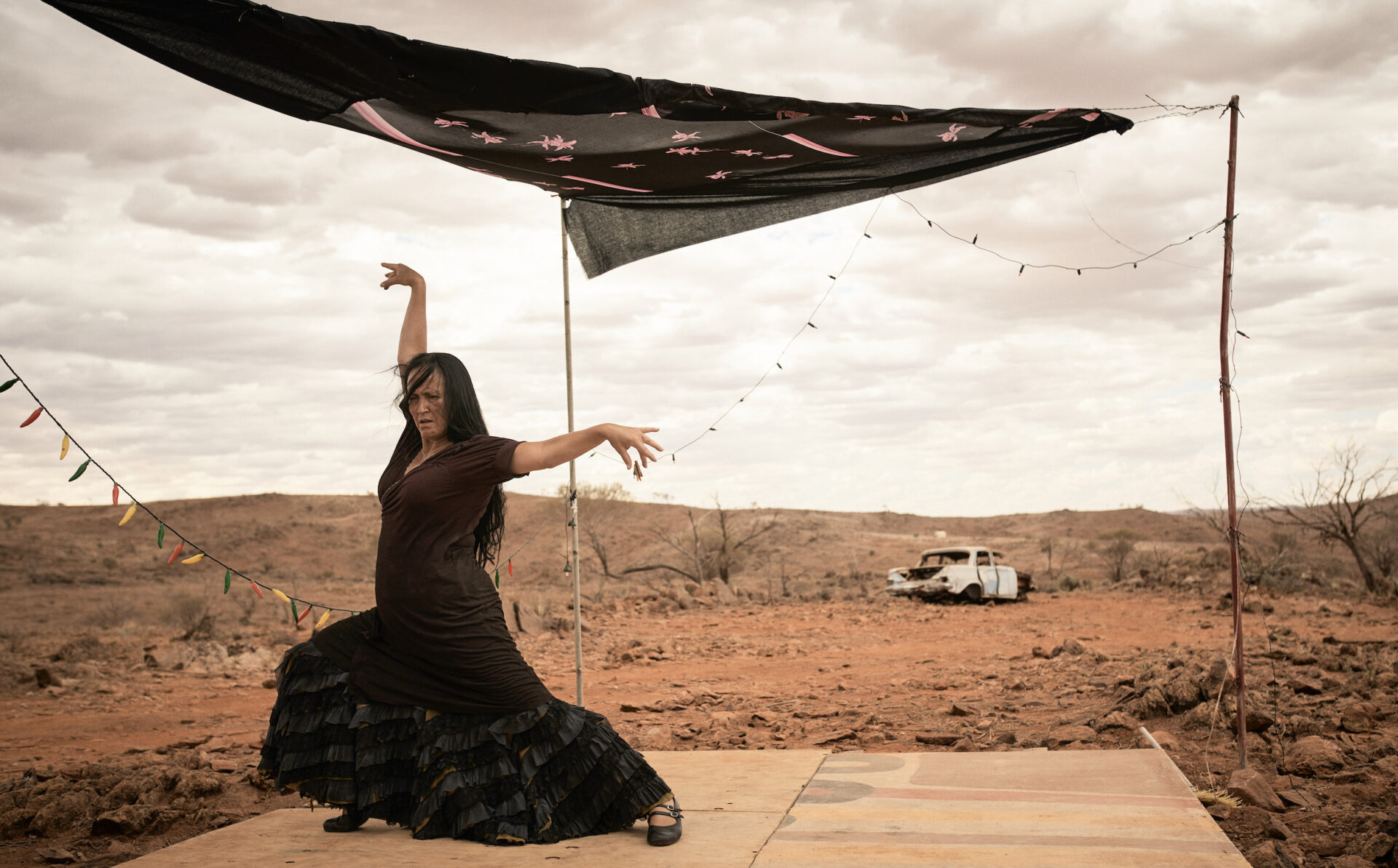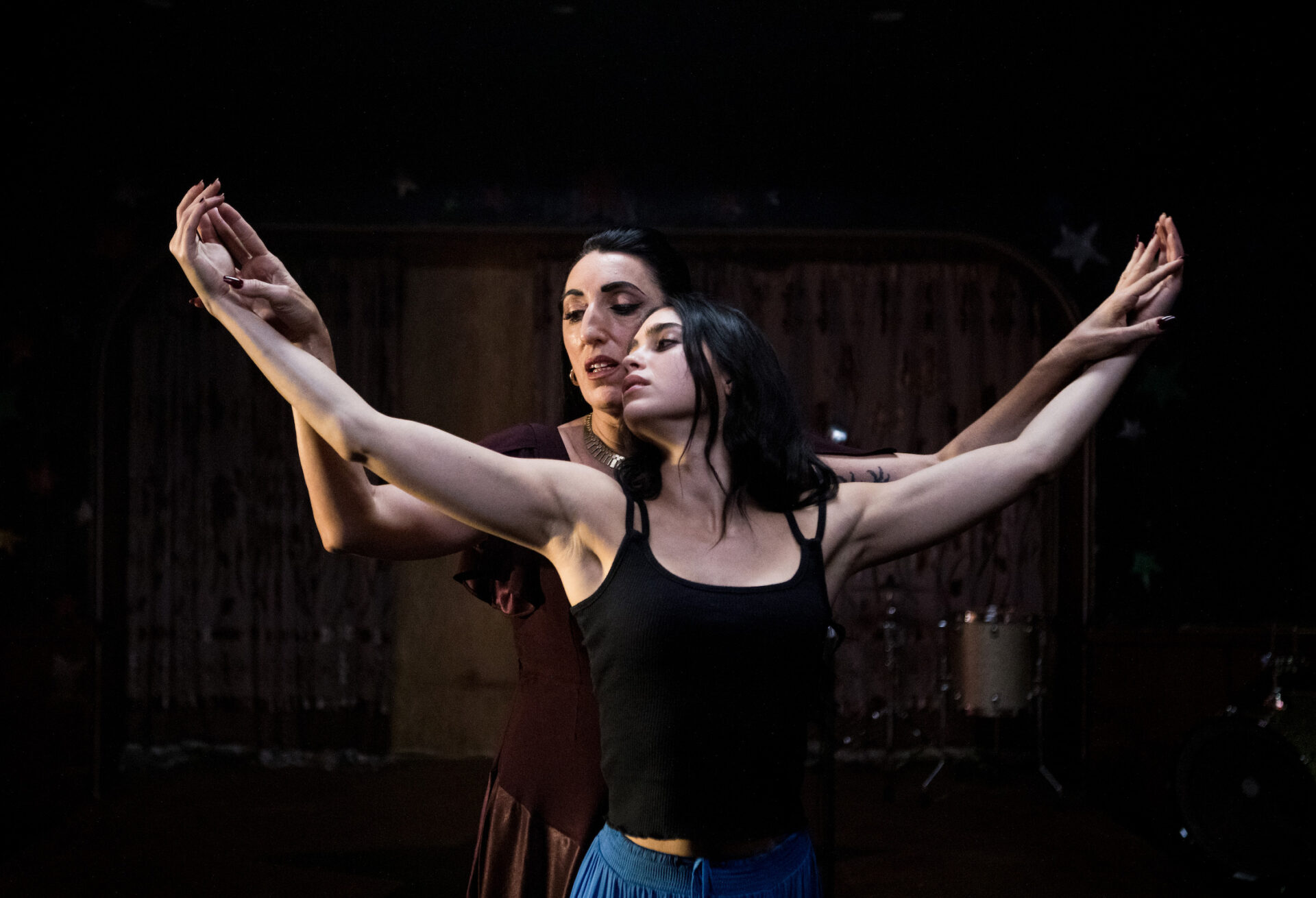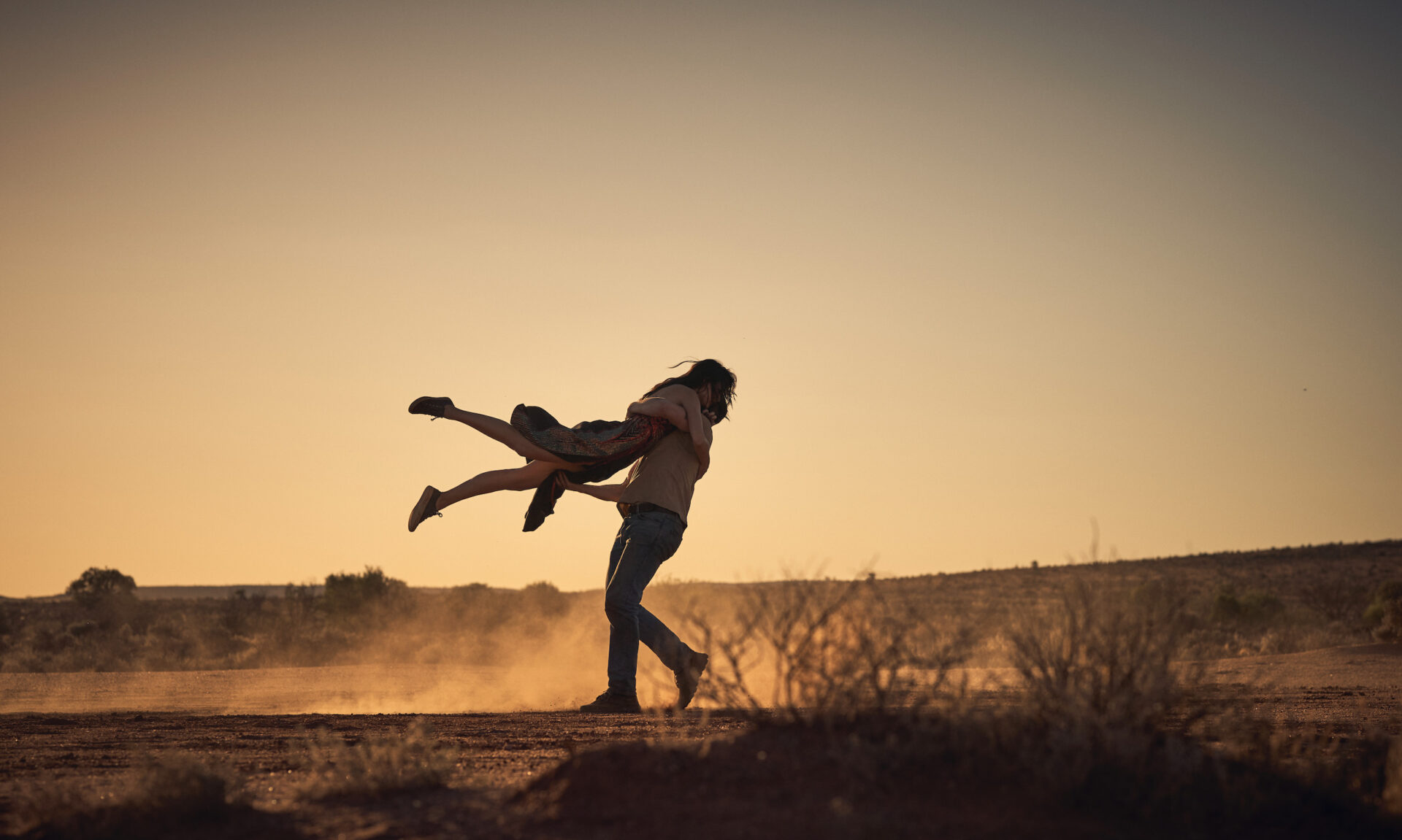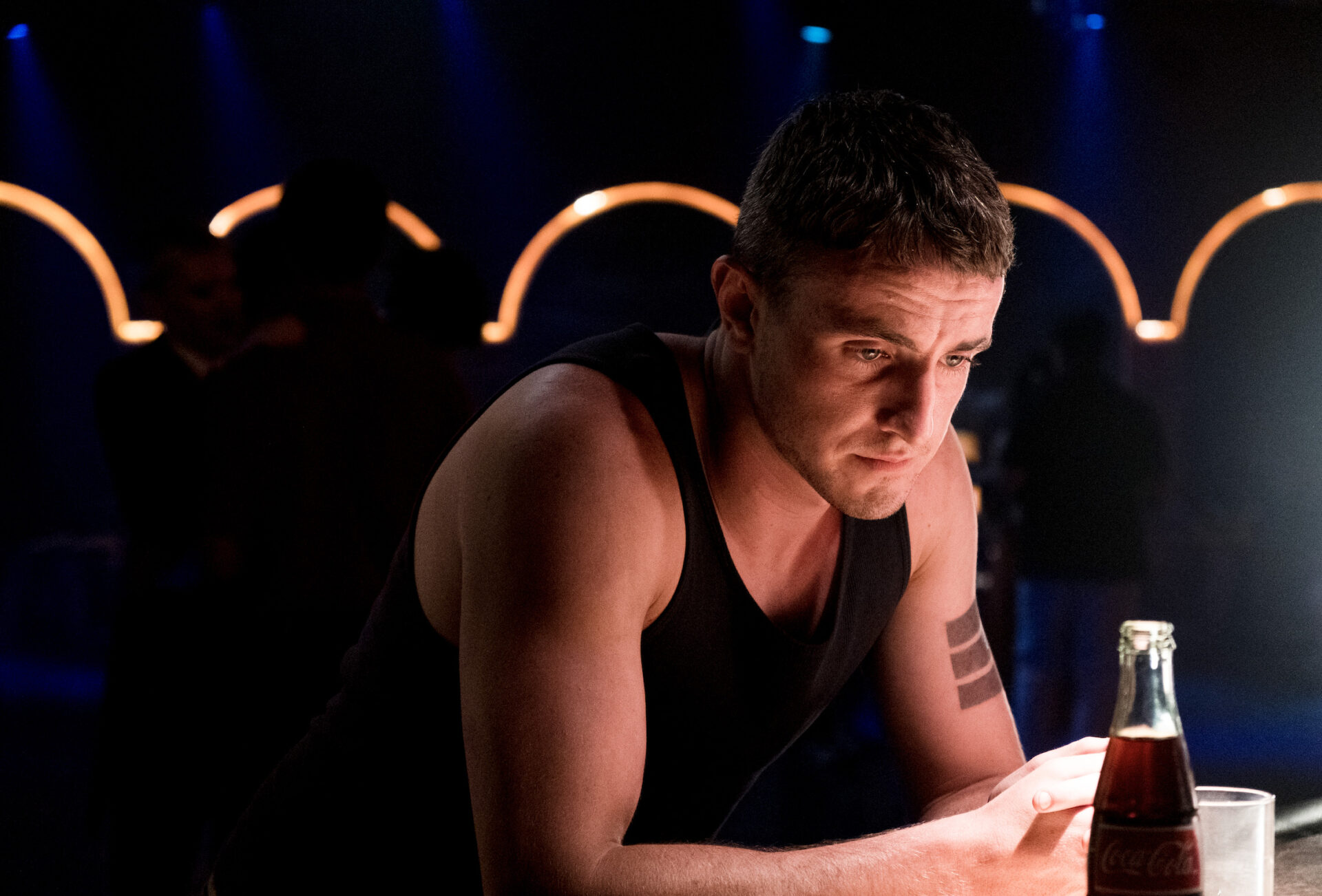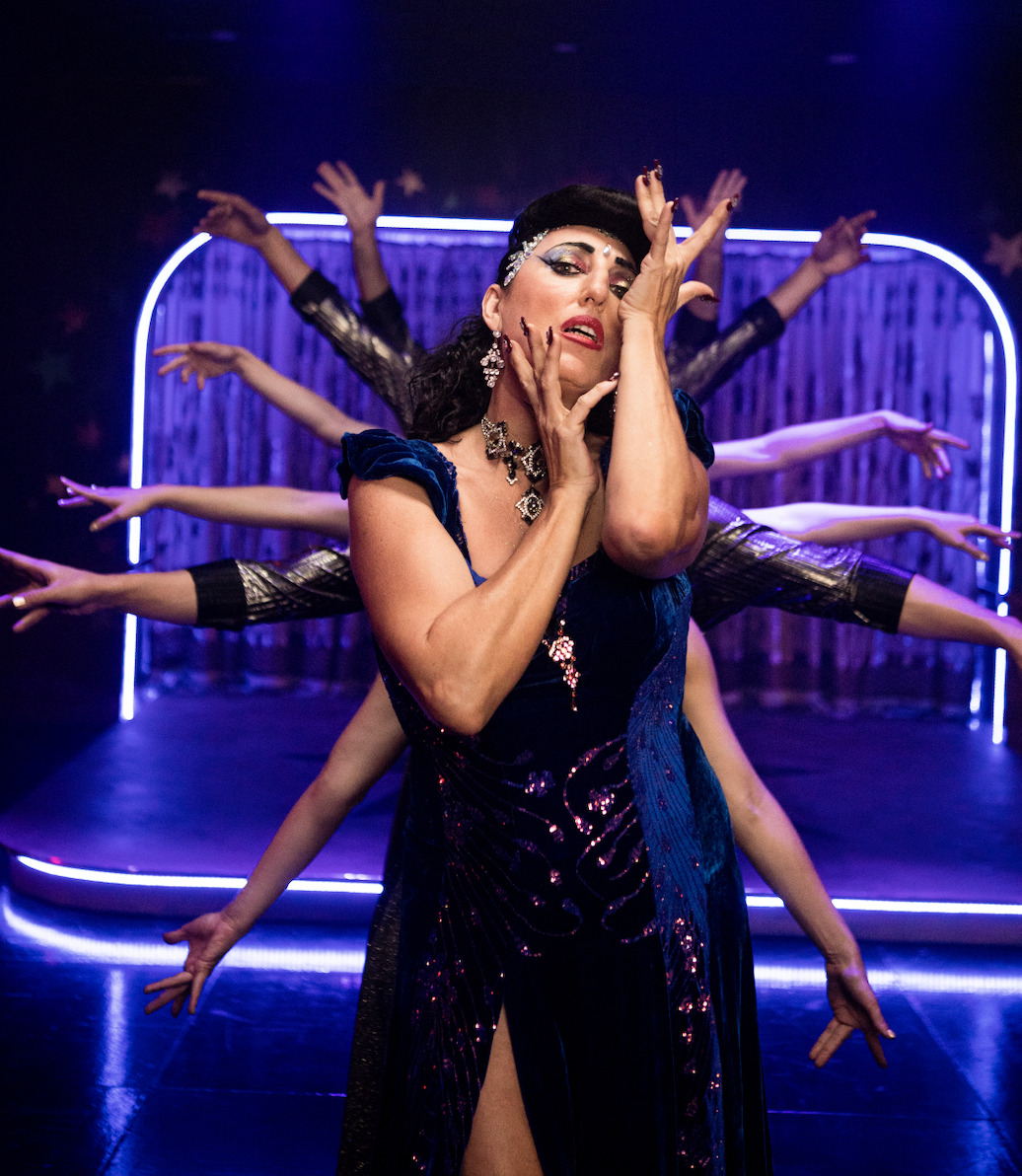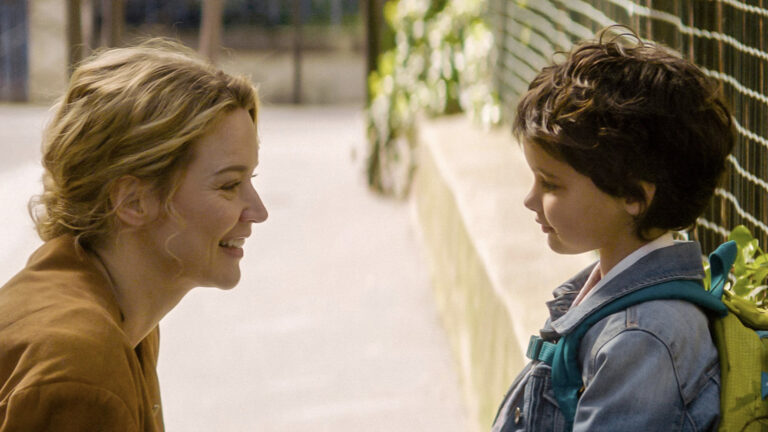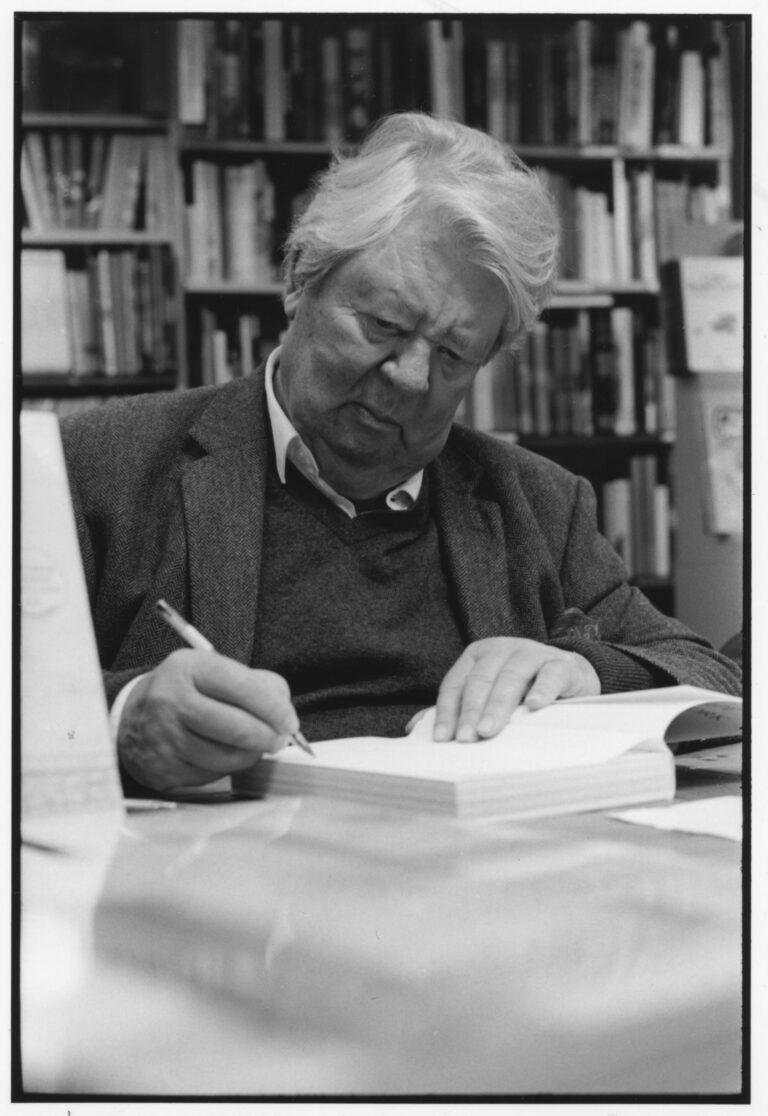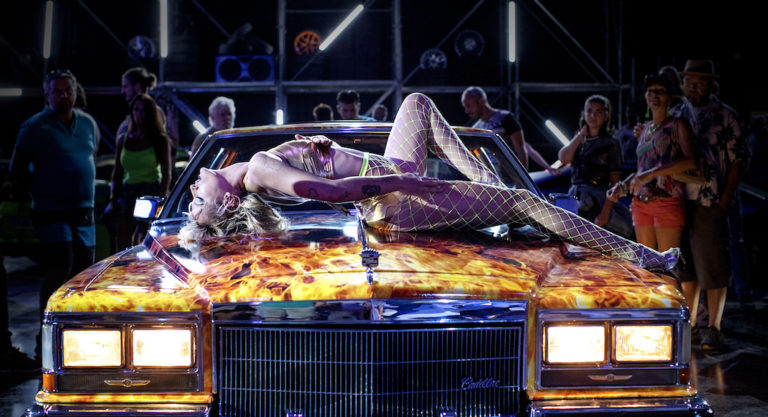Carmen opens with a flame. A couple fleeing down an empty road in the night. A haunted face. The first scene is a dance, a woman in a black dress, her face weathered from the sun, performing a defiant flamenco on a plywood platform in the desert. In the distance, a car approaches. A man emerges. She continues to dance. “Where is she?” the man asks. Her heels against the wood speak for her. There’s a rumbling. A gunshot. A girl in the distance runs toward the sound.
Benjamin Millepied’s Carmen is not an adaptation of the opera. The director aimed instead to capture the spirit of its heroine in the story of a young Mexican woman (Melissa Barrera) fleeing the drug cartel that killed her mother. Along the way she meets Aidan (Paul Mescal), a Marine struggling with PTSD, who finds purpose in helping Carmen attain the freedom she seeks. It’s a story told through dance, poetically juxtaposed images, and the music of award-winning composer Nicholas Britell (Moonlight, Succession). The result is a dreamlike, immersive experience that challenges viewers to let go of conventional narrative expectations and give themselves over to the dance.
Millepied is known primarily as a dancer and choreographer. He was a principal dancer in the New York City Ballet and has choreographed for many companies, including the Paris Opera Ballet and the Lyon Opera Ballet. Cinephiles might know him best for his choreography and performance in Darren Aronofsky’s 2010 Oscar winning psychological thriller Black Swan (where he met his wife, the actress Natalie Portman). Since then, Millepied has directed several short films and music videos. Carmen is his feature debut.
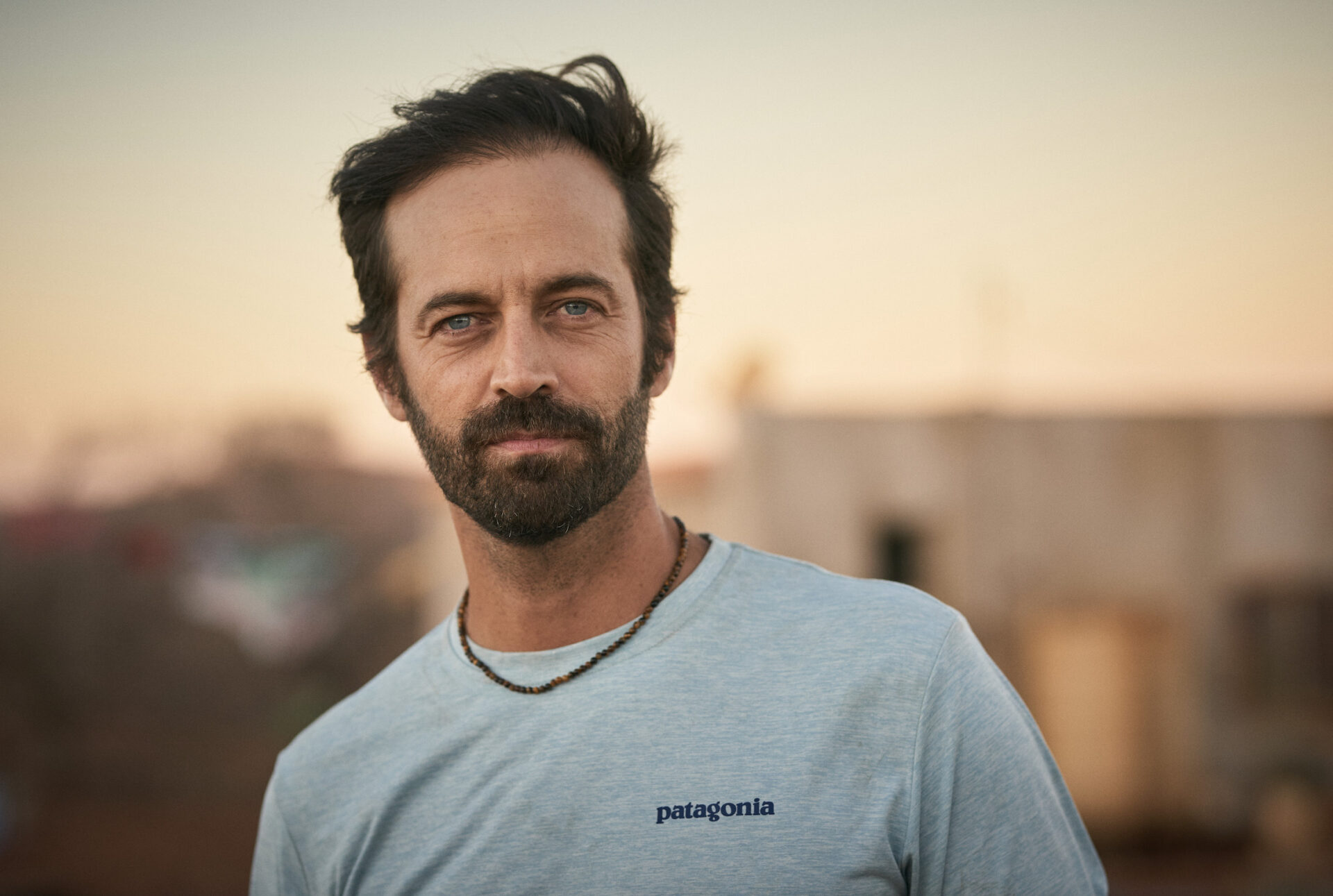
The film isn’t a retelling of the opera Carmen. How are the two related for you?
Essentially, Carmen is about this fearless character and the freedom that inhabits her. What’s interesting about the character and story for me is this magical, larger-than-life quality and the freedom that she embodies. I wanted her to be a woman who can love and be loved and not just a male fantasy, which she is in the opera. She’s this woman that people want to possess, but she also doesn’t have much to say and she gets punished for her sins. [The film] is really about her journey and the energy and connection of the women who carry Carmen through this journey with the help of the man who brings her life.
The film has a unique visual language. You open with a series of images that doesn’t make sense yet, but they’re beautiful and intriguing. We don’t get a lot of information, but we’re guided by music, dance, and these poetic images.
Those first images are very important, I had a version that didn’t have that, and I think if that language wasn’t set up at the beginning, the audience would be like, what is happening? We really paid attention to the way we lit the set, creating a thick atmosphere you can cut with a knife. That in itself is storytelling. We set up the language early, so the audience would accept it.
What are your cinematic influences? Are any of them French?
Yeah! I would say my all-time favorite is Bresson: his insane sensibility for the expression of bodies and editing that feels like choreography. Pickpocket is a big one for me. I also love how he used non-actors and found the right people to embody the strangeness and the really interesting quality that pulled you into the stories. Renoir is another one. His film The Rules of the Game is a masterpiece of storytelling. Also Melville is a master craftsman. I love the details, discipline, and impressive quality of his craft.
What about other influences?
Kurosawa is a huge one. There’s such physicality and the kind of movements that go from tight shots to long shots with complete connection to the bodies on screen. I’ve watched Kazan a lot. That physicality was so vivid on screen, and you see a theater director who learns how to be a filmmaker and starts learning to move the camera and creates these timeless masterpiece performances. Hitchcock, obviously, Fellini, Antonioni for the boldness of storytelling and for not always answering every question in the script. I love that! Leaving the audience to figure out what happened to the woman on the island, not answering that question, that’s a very beautiful thing. Things can be left mysterious, which I do a lot in Carmen.
What does dance mean in the film?
The goal was to tell a drama with music. You have musicals where people sing and dance and they’re light and fluffy. The idea here was to be in a place of dreams and darkness and use dance in a way that felt completely integrated. You can’t name that many films that do that, and that was a goal. How do you tell a dark story with dance? How do you do a boxing scene and have people move around and not feel that it’s ridiculous?
There are magical realist elements like the fire that seems to jump from Carmen’s house to Aidan’s feet.
Life is full of coincidences that never feel like coincidences in the end. Her setting the house on fire is basically the mother sending the fire to Aidan’s house. I was very inspired by Mexican stories of life and death, so I wasn’t afraid to do things like that.
Who is Aidan and what is driving him?
Aidan is like so many of these men who come back from war and are living through life like ghosts. I wanted to portray that sadness, but also someone who’s also deeply good. I didn’t want just asshole men in the movie who just want to possess Carmen. I wanted to portray someone with a deeper quality. In Aidan, Carmen meets someone who will change her life, and Aidan gets to live something meaningful that he never has before. Ultimately, he brings her life and she brings him to his death.
I’m a huge Almodovar fan and Rossy de Palma is an international treasure. I understand your wife, Natalie Portman, suggested both her and Paul Mescal, who is one of my favorite actors at the moment. Were you immediately struck by the brilliance of the suggestion?
I was, I was! Almodovar’s are the movies of my 20s, and they’re movies I never forget. Rossy did her first scene on set and I heard that voice in Spanish and I had chills all over. I was listening to this voice of my twenties on my set in my film. It was wild! But yeah, it absolutely was Natalie’s idea. I was writing the character and she was like, “You should use Rossy de Palma.” Rossy got the script and she was hooked and she never left the project. She wanted to be the character. And Paul, Natalie watched Normal People during Covid. She was in pajamas, having been completely overwhelmed by the performance, and she was like, “I have your actor. This is who you should cast.”
Melissa Barrera and Paul Mescal hadn’t danced professionally before the film.
It’s a headscratcher how she can dance like that without having studied. I remember when we were shooting the big dance scene with all these professional dancers. We had rain and no time and I was watching her warm up and thinking this is never gonna work. I told her double, “Get ready, I think we’ll do all the takes with you.” And then we rolled and she just came to life, and she performed, to be honest, with the kind of freedom that was more powerful than the professional dancers behind her. That really blows me away the way she dances in that scene.
How was the film influenced by West Side Story, directed by your mentor Jerome Robbins?
I danced West Side Story for years on the stage in the New York City Ballet, so obviously, consciously or unconsciously, there’s elements of it. What I wanted to do was to make sure that Paul’s dancing and the boxing felt real and tough and not superficial. Jerry in his dances always wanted people to be themselves. I knew it was complicated to make the gang members dance, like in West Side Story. It’s more like what does it mean to make dance feel like part of life in this film? When the boxers around Aidan are moving, there’s a brutality and edginess to it that feels right for that moment.
What’s next for you?
I’m working on a movie set in Paris. What gave me the impetus are two movies that I love. One is Elevator in the Gallows, which actually isn’t a great story. You have Jeanne Moreau walking through the streets of Paris waiting for a man for an hour and a half. She doesn’t do anything, and she steals the movie. It’s the music of Miles Davis and Jeanne Moreau, but the idea of the movie taking place over the course of a night really interested me, and also La Notte, about what the couple go through in the course of a night—and the way it ends. That’s what drove me to write it.
Maybe a hint of Before Sunrise?
Never seen it!
It’s one of my favorites. The whole trilogy is amazing.
Now I’ll see it!
Carmen opens in select markets April 21, 2023, followed by a national release in May 2023.
Andrea Meyer has written creative treatments for commercial directors, a sex & the movies column for IFC, and a horror screenplay for MGM. Her first novel, Room for Love (St. Martin’s Press) is a romantic comedy based on an article she wrote for the New York Post, for which she pretended to look for a roommate as a ploy to meet men. A long-time film and entertainment journalist and former indieWIRE editor, Andrea has interviewed more actors and directors than she can remember. Her articles and essays have appeared in such publications as Elle, Glamour, Variety, Time Out NY, and the Boston Globe.


